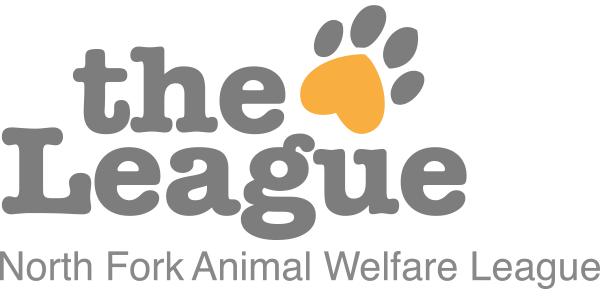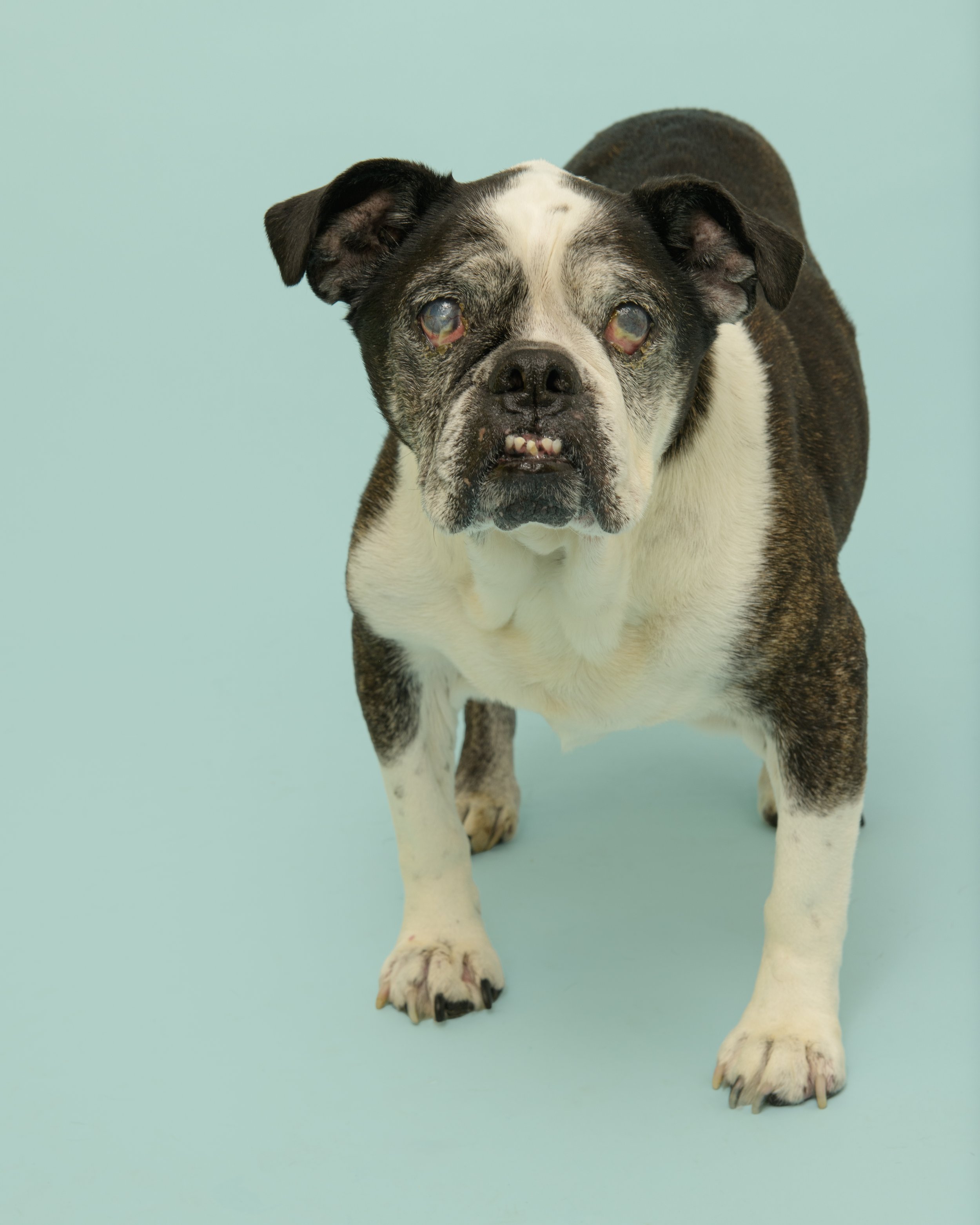Helping Senior Pets: Giving Them The Attention They Deserve
Have you ever noticed how senior pets seem to carry quiet wisdom in their eyes? Senior pets might have a few gray hairs or walk a bit slower, but the love they have to give is just as deep—if not deeper than when they were younger.
Helping senior pets find loving homes and enriching their lives is something we’re passionate about here at North Fork Animal Welfare League (NFAWL). These older pets often go unnoticed in shelters, but they have so much joy, loyalty, and gratitude to offer.
This month, we’re celebrating our senior pets and showing just how rewarding it can be to bring them into your life. From their unique companionship to the special care they need, we’re here to shed light on why senior pets are so deserving of love and how you can make a difference in helping them enjoy their golden years with comfort and happiness.
Why Adopt a Senior Pet?
The reality is that helping senior pets find homes can be challenging. They are often the last to be adopted, as many people overlook them in favor of younger animals, thinking they may come with “baggage” or won’t live as long. However, senior pets possess a unique charm and maturity that makes them wonderful companions. They are typically already trained, have calmer temperaments, and—most importantly—show immense gratitude to those who open their hearts to them.
Must-Know Facts About Caring for Senior Pets
Caring for a senior pet can be incredibly rewarding, but it’s essential to be aware of the unique needs that come with age.
Here are some crucial facts every senior pet caregiver should know:
1. Aging Pets Require Specialized Diets
Senior pets benefit from foods rich in nutrients that support joint health, weight management, and immune function. High-quality proteins, joint-supporting supplements, and foods low in fat can keep older pets healthier and more comfortable.
2. Regular Health Screenings Are Essential
Age-related conditions such as arthritis, heart issues, and dental problems are common in senior pets. Routine vet visits allow for early detection and management of these issues, improving their quality of life and longevity.
3. Mental Stimulation Is Just as Important as Physical Exercise
Keeping an older pet’s mind active is crucial to prevent cognitive decline. Activities like gentle play, puzzle toys, and even scent work can keep their minds sharp.
4. Joint and Mobility Issues Are Common
Arthritis and joint pain can affect many senior pets, making it essential to adjust exercise routines to their comfort level. Physical therapy, gentle walks, and a cozy, orthopedic bed are often very helpful.
5. Senior Pets May Become More Prone to Anxiety
Changes in vision, hearing, or other senses can make older pets more anxious. Maintaining a predictable routine and using calming tools like soft bedding and gentle music can ease their anxiety.
6. They Still Crave Companionship and Connection
Senior pets need companionship just as much as younger ones. Time spent with family members, regular grooming, and social interaction help prevent loneliness and behavioral changes.
Tips for Caring for Senior Pets
Looking after an older pet takes some adjustments, but these tips can help keep them healthy, happy, and feeling loved:
1. Adjust Exercise to Fit Their Abilities
Senior pets still need exercise, but it’s important to tailor activities to their abilities. Short walks, gentle play, or even swimming for dogs with arthritis are ideal ways to help them stay active without overexertion.
2. Provide a Comfortable, Supportive Sleeping Area
Senior pets need a cozy, supportive bed, especially those with arthritis. Look for orthopedic pet beds to ease joint pain and allow for better sleep.
3. Keep Their Environment Safe and Accessible
Older pets may experience reduced mobility or vision, so make their living space easier to navigate. For dogs, consider adding ramps, keeping food and water in accessible locations, and ensuring that their area is free from tripping hazards.
4. Watch for Behavioral Changes
Changes in behavior, such as increased anxiety, confusion, or disinterest in activities they once enjoyed, may signal a health issue. Routine check-ups with the vet can help address these issues early.
5. Offer Gentle, Engaging Activities to Stimulate Their Mind
Senior pets enjoy activities that don’t require too much energy but still engage their senses. Try scent-based games, puzzle feeders, or calm, relaxing activities to keep their minds sharp.
How We Support Senior Pets at NFAWL
At NFAWL, we’re committed to giving our senior pets not only a safe haven but also a fulfilling experience during their time with us. Here’s how we support the unique needs of older pets:
Social Activities and Playgroups
Socialization is essential for keeping senior pets emotionally balanced and mentally sharp. Our carefully designed playgroups match dogs and the other pets at our shelter by energy level and play style, offering gentle play and companionship that keeps them engaged and happy.
Tailored Physical Activity
It’s a misconception that senior pets or senior dogs don’t enjoy physical activity. They do! Exercise keeps them agile, fit, and healthier overall. But, of course, we tailor each session to suit their age, breed, and health conditions. Gentle strolls around the shelter, easygoing play sessions, and agility exercises designed for older joints are part of our approach to keeping seniors healthy and happy.
Health and Wellness Support
Senior pets often need extra care, so we monitor their health closely. We provide routine health checks, special diets, and joint support, ensuring they enjoy their golden years in comfort.
NFAWL is dedicated to supporting the unique needs of senior pets in every way possible. Through tailored playgroups, gentle physical activity, and personalized healthcare, we ensure our senior pets enjoy a balanced, fulfilling life at the shelter. However, they deserve forever homes, too—and you can help make that happen!
To learn more about how you can support NFAWL and our senior pets, visit our website, and let’s make a difference together!
This is Brock!
Meet him at our Aquebogue shelter location.




